Resigning from a position can be a challenging decision, especially when it's rooted in policy disagreements. Whether it's a fundamental difference in values or a lack of alignment with the company's direction, it's essential to communicate your thoughts clearly and respectfully. Crafting a thoughtful resignation letter is not only professional, but it also leaves the door open for future connections. Want to learn how to express your concerns while maintaining goodwill? Read on for a sample letter template that can help you navigate this tricky situation smoothly!
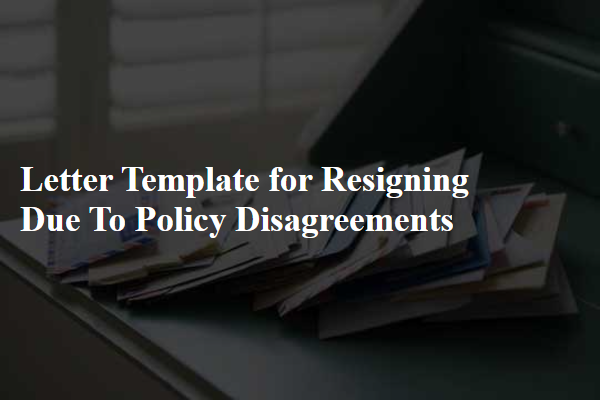
Clear reason for resignation
Resignation due to policy disagreements can stem from various factors, including ethical concerns, company direction, or workplace culture. Employees may feel compelled to leave when organizational policies, such as the handling of diversity and inclusion, environmental practices, or employee rights, contradict their personal values. Disagreements over decisions impacting employee welfare and engagement can further exacerbate the situation. Clear communication of these concerns in a resignation letter is essential to provide feedback for future improvements. This ensures that the departing employee communicates their intentions respectfully while reflecting the serious nature of their reasons.
Professional and respectful tone
Resignation due to policy disagreements often reflects deep concerns regarding company practices or ethics. Such decisions require professionalism and respect to maintain relationships. For example, consider a situation where a compliance officer expresses disagreement with new regulatory practices introduced by a corporation. The officer values proper governance in financial institutions, noting that the new policy could lead to potential legal issues. By submitting a resignation letter, the officer can outline their concerns while remaining courteous. A well-articulated resignation not only conveys the intent to leave but also highlights essential issues, contributing to constructive dialogue even after departure. This approach ensures a professional closure while standing firm in one's principles.
Notice period acknowledgment
Resigning from a position due to fundamental disagreements with company policies can create a significant impact on one's career trajectory and workplace environment. A professional approach is essential when announcing such a decision. Key components of a resignation notice typically include acknowledgment of a notice period, duration specified by company policy, and an expression of gratitude for opportunities provided during tenure. Highlighting specific experiences gained, such as skills developed or projects completed, can also lend a positive tone to the communication. Providing this notice in writing allows for clarity and record-keeping, which is beneficial for both the employee and employer in maintaining professional relationships within the industry.
Transition assistance offer
In professional environments, employees may face situations where company policies create significant disagreements, prompting the need for resignation. For instance, an employee may decide to resign from a position in a technology firm due to new data privacy policies that conflict with personal ethical standards. To facilitate a smooth transition, the employee may propose assistance, such as training replacements or preparing detailed documentation on current projects. This approach ensures a professional exit by maintaining relationships and demonstrating a commitment to the organization's ongoing success. Offering this form of transition assistance can foster goodwill and potentially open doors for future opportunities in the industry.
Gratitude for the opportunity
Resigning from a position can be a challenging decision, particularly when based on policy disagreements. Expressing gratitude for the opportunity can help maintain a positive relationship. A resignation letter might highlight appreciation for the support received, the professional growth experienced during employment, and the positive relationships formed with colleagues. Additionally, this letter could reflect a commitment to uphold the organization's values in future endeavors while wishing the team well in their ongoing projects and future success. Such an approach fosters goodwill, ensuring a respectful departure from the organization.
Letter Template For Resigning Due To Policy Disagreements Samples
Letter template of resignation based on conflicting policy perspectives.
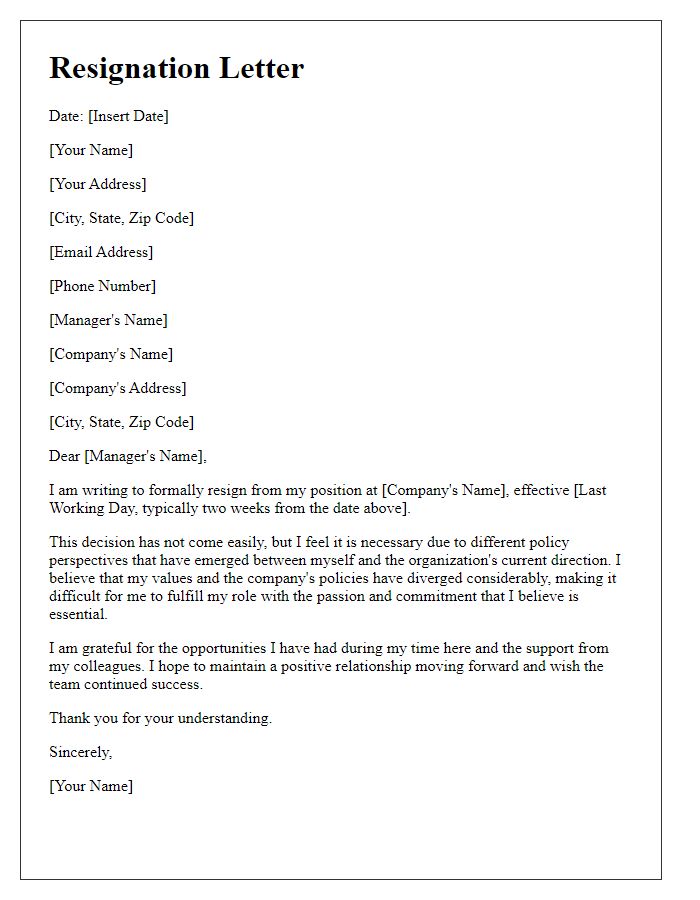

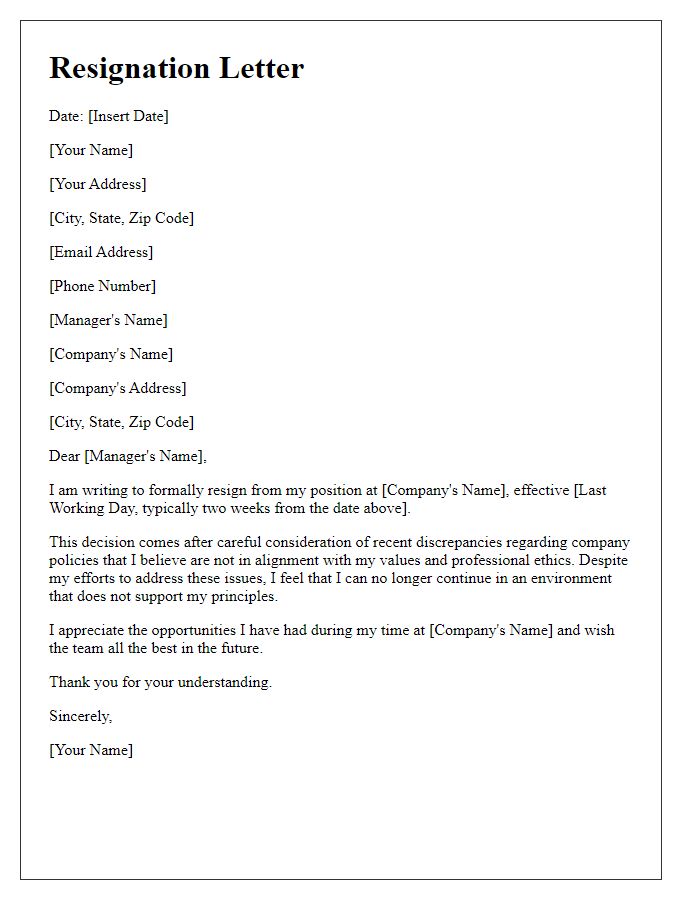
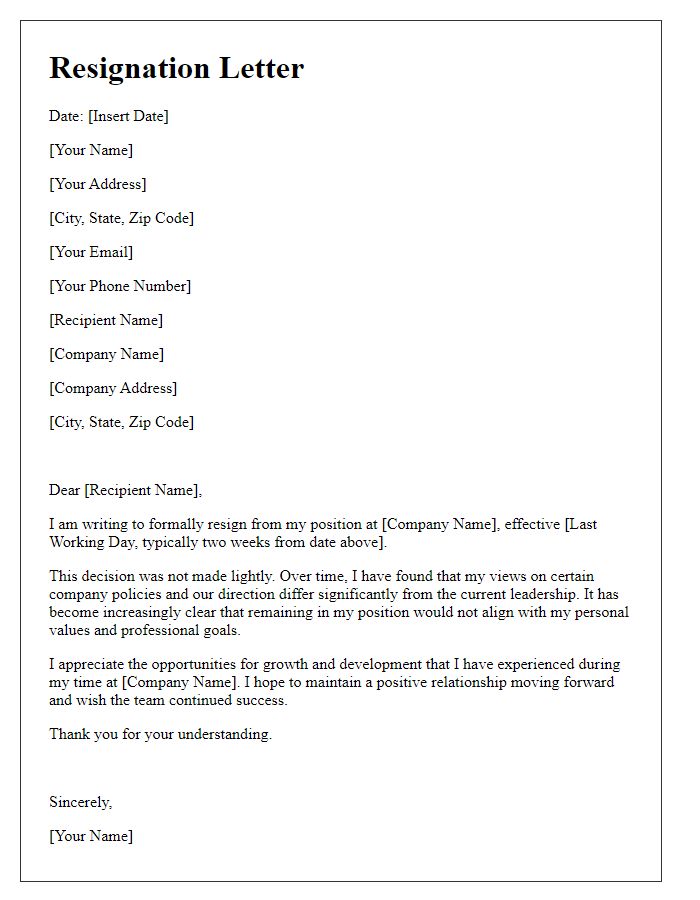
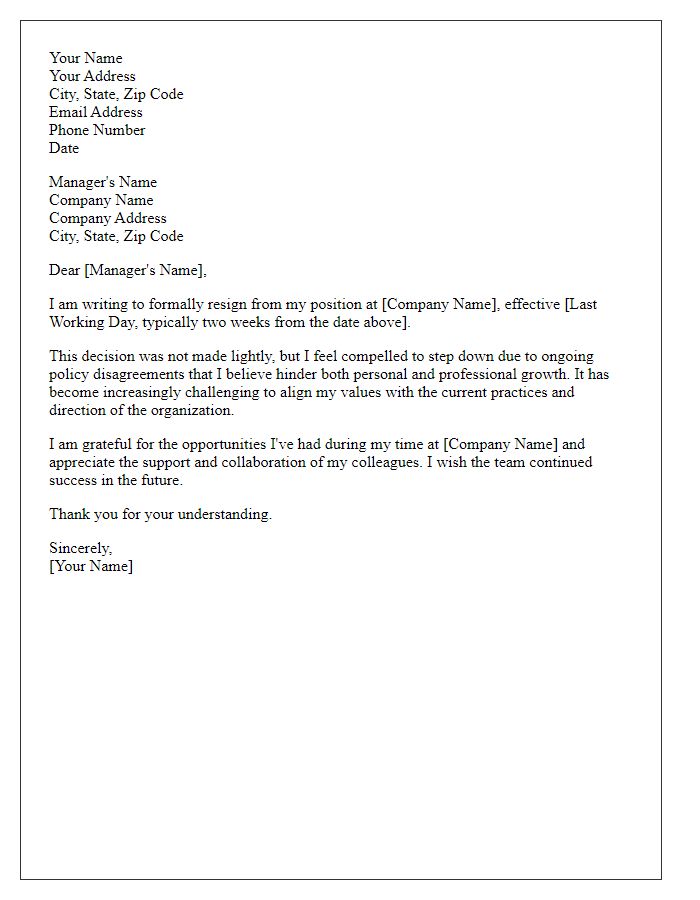
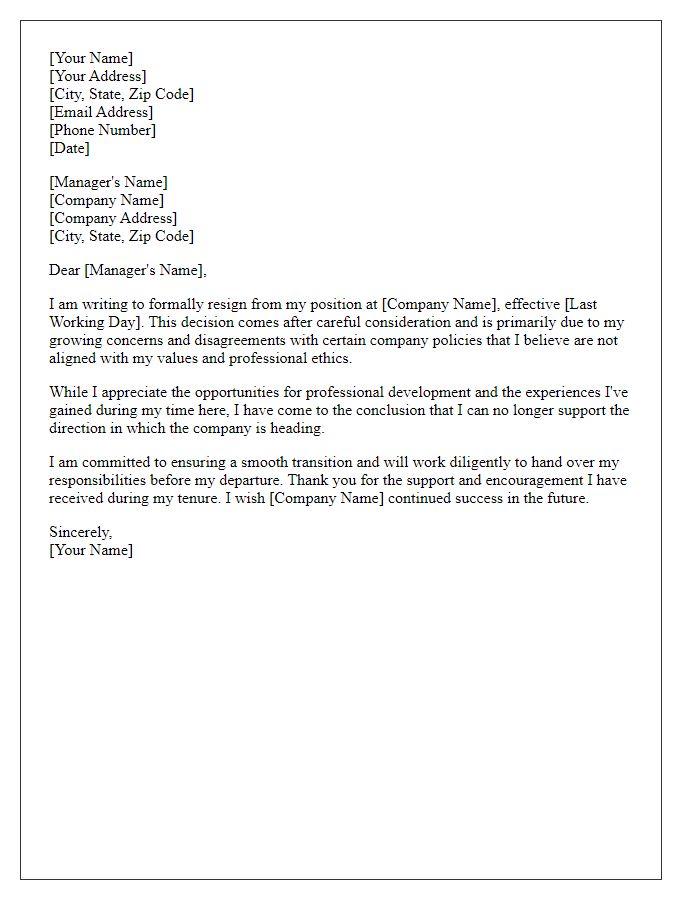
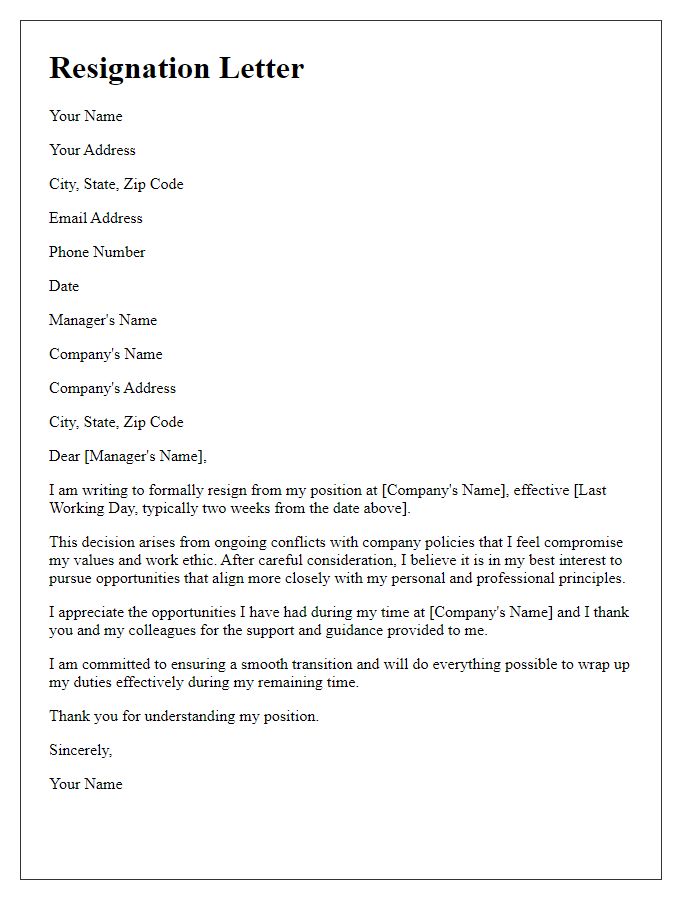
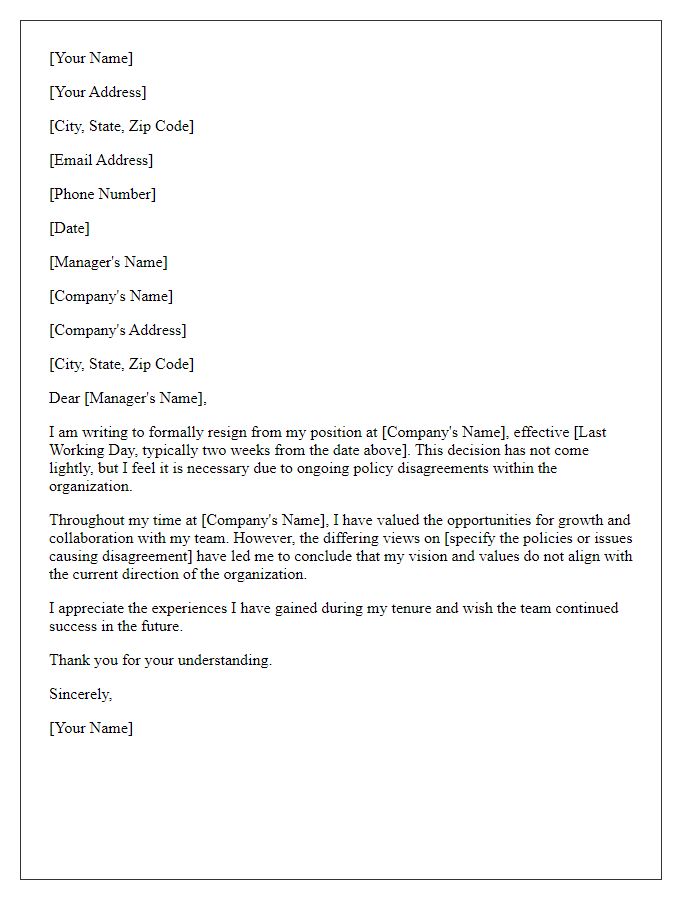
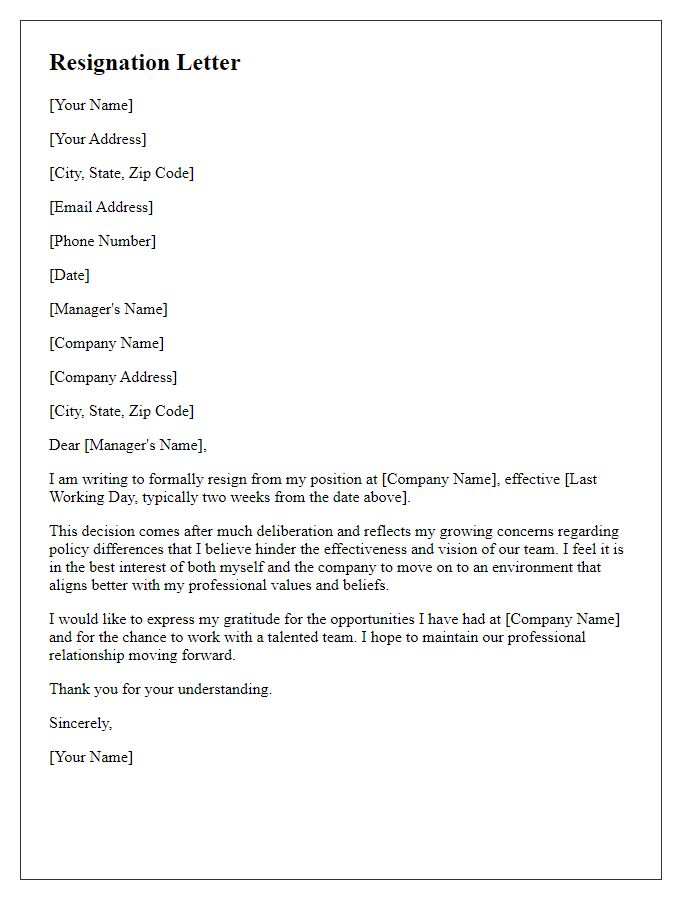
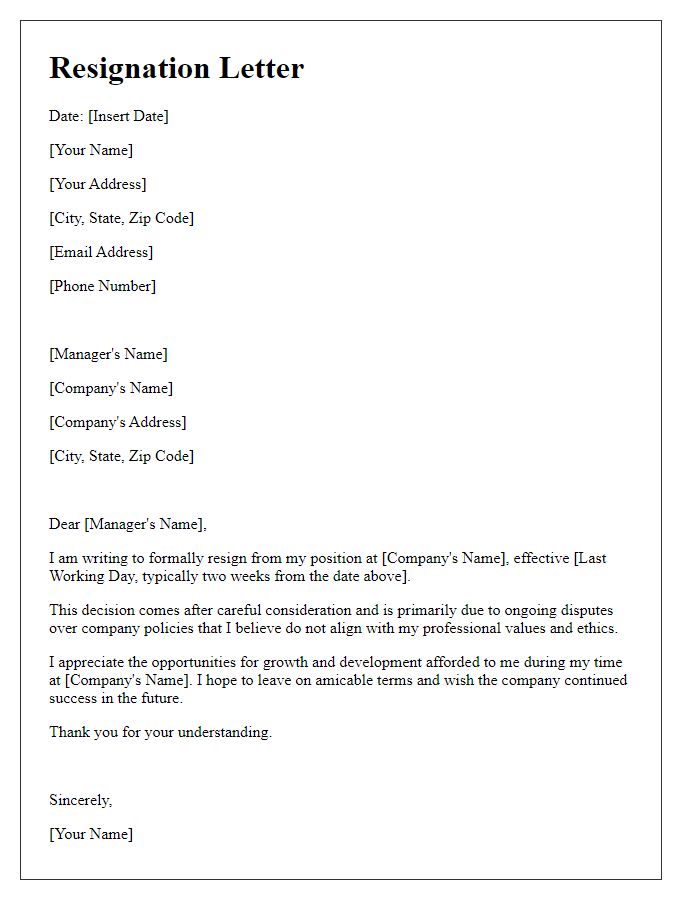
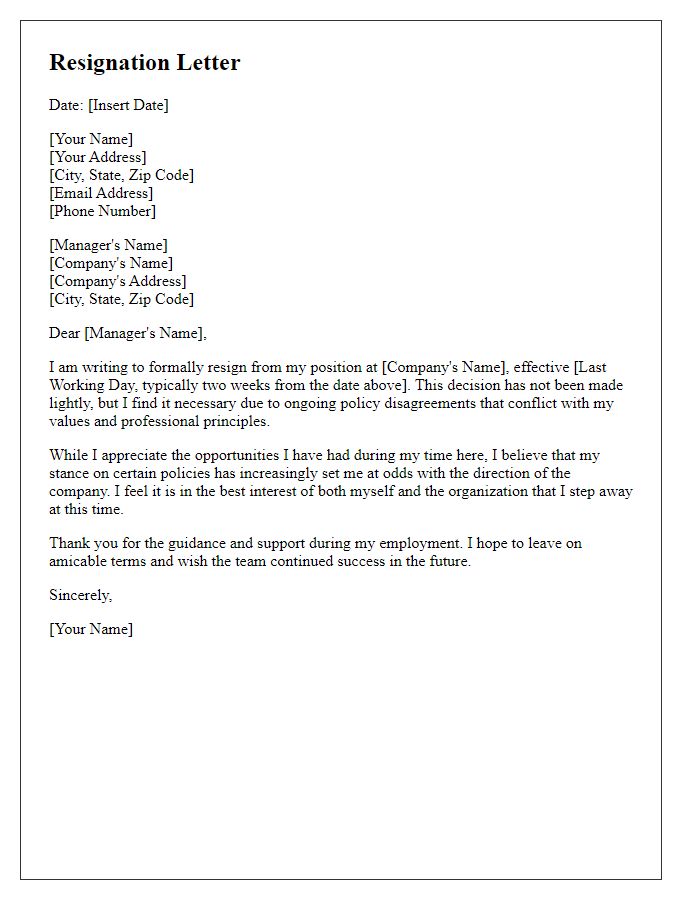


Comments